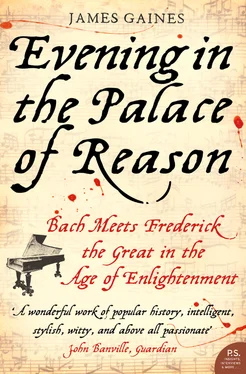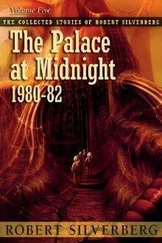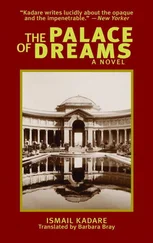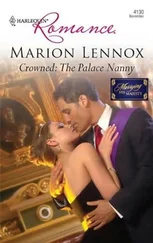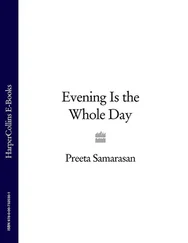Just as Albert and Tetzel had got started with their new indulgences, on the eve of All Saints’ Day 1517, when Frederick the Wise would have put out his relics and indulgence fever would be at a pitch, Luther pinned to the door of the Castle Church in Wittenberg his “95 Theses,” which took off directly from the promises in Tetzel’s latest spiel. For example:
27. They preach man who say that so soon as the penny jingles into the money-box, the soul flies out [of purgatory].
28. It is certain that when the penny jingles into the money-box, gain and avarice can be increased, but the result of the intercession of the Church is in the power of God alone …
46. Christians are to be taught that unless they have more than they need, they are bound to keep back what is necessary for their own families, and by no means to squander it on pardons …
75. To think the papal pardons so great that they could absolve a man even if he had committed an impossible sin and violated the Mother of God—this is madness! …
Drawing to a close, he posed a series of statements from which he diplomatically distanced himself by characterizing them as “shrewd questions from the laity”:
84. “… What is this new piety of God and the pope, that for money they allow a man who is impious and their enemy to buy out of purgatory the pious soul of a friend of God, and do not rather, because of that pious and beloved soul’s own need, free it for pure love’s sake?”
86. Again: — “Why does not the pope, whose wealth is to-day greater than the riches of the richest, build just this one church of St. Peter with his own money, rather than with the money of poor believers?”
The rest, as they say, is history, one of whose most wonderful ironies is that we have a Hohenzollern to thank, if only indirectly, for the Protestant Reformation.

A FEW YEARS LATER another Hohenzollern named Albert had an encounter with Martin Luther of a very different sort. This Albert was the cardinal’s cousin, who had managed to get himself elected grandmaster of the Order of Teutonic Knights, a once-powerful group of German nobles who had taken over Prussia by putting down its heathen locals, which involved pretty much exterminating them. They prospered for a time, but that was centuries ago. Now, despised by their subjects and beaten repeatedly on the battlefield when they attempted to expand into Poland and Lithuania, they had been reduced to a small Polish fiefdom. They kept their dreams of independence alive by electing ever richer grandmasters to fill their treasury for more doomed military exploits. That was the reason they elected Albert of Hohenzollern. It was a bad mistake.
Despite the fact that the Hohenzollerns at this point supported the pope and the emperor, Albert was a secret admirer of Luther and an early convert. At the point when he had come to realize that the Teutonic Knights were hopeless, he asked the reformer for advice. Luther, with a pragmatic political sense for which he is not well known, advised Albert to dissolve the Knights and ask Poland in return to let him convert Prussia into a hereditary duchy. Startled by the thought—or perhaps by its source—he sat quiet with the idea for a moment, then erupted in laughter. It was a wonderful idea. All it would require was the betrayal of the order that had been entrusted to his care.
So ended the reign of the Teutonic Knights in Prussia, and thus did the Hohenzollerns add another major holding to Brandenburg and the other Albert’s bishoprics.
The son of the new duke of Prussia was clinically insane, but even he managed to expand the Hohenzollern territories. The family arranged for him to marry the eldest daughter of one William the Rich, ruler of five small territories on the Rhine. (She found out he was mad after she was already on her way to Prussia but decided to go anyway, two previous fiancés having left the field.) One of the daughters from this union married the new elector of Brandenburg, Johann Sigismund, who happily converted to Calvinism in order to placate these new Hohenzollern provinces. Since he could not conceivably impose Calvinism on Brandenburg or his subjects in East Prussia, he waived his right to do so. Like most other things Hohenzollern, their tradition of “religious toleration” was all about real estate.
At the death of their crazy Prussian duke, the family agreed that Sigismund should take over Prussia as well, at which point a single branch of the family could lay credible claim to territories from the Rhine to the far side of the Elbe—
Just in time for the Thirty Years War. Sigismund’s son had watched over the worst of it, and he was not equal even to a lesser task. His great-great-grandson, our baby crown prince Frederick, would write many years later:
All the plagues of the world broke over this ill-fated Electorate—a prince incapable of governing, a traitor for his Minister, a war or rather a universal cataclysm, invasion by friendly and enemy troops equally thievish and barbarous … Though [the elector] cannot be held responsible for all the misfortunes which befell his territories, his … weakness only left him a choice of errors … Powerless and in continual uncertainty he always changed over to the strongest side; but he could offer too little to his allies to secure their protection against their common enemies.

LUCKY FOR THE Hohenzollerns, the heir of this ill-starred elector proved to be the savior of the dynasty. Without Frederick William I of Brandenburg, known as the Great Elector, it is entirely possible that, for all their earlier success, there would have been no Hohenzollerns ruling in Germany after the war, and no way for the Great Elector’s great-grandson to become Great himself.
Thanks to his father’s ineptitude, when the Great Elector came to power in the last decade of the war, all of his scattered lands were desolate and occupied. East of the Elbe, Prussia was overrun by Polish troops. To the west, Cleves-Mark was beset by a warring mix of Dutch, imperial, and Hessian forces. Brandenburg itself was occupied in the north by Sweden, which was everywhere else fighting imperial troops in the attempt to occupy the rest. Still not connected at any point, the Hohenzollern patchwork was difficult to defend at the best of times, and these were the worst. The electorate had lost nine hundred thousand people—two-thirds of the entire population—to war and murder. Its fields had been barren for years, and what commerce remained was undercut by plunder and counterfeit currency. The elector had lost virtually all of his power. His treasury was gone, and since most of his troops were mercenary, that meant he was all but defenseless.
Almost miraculously, through drastic military reform and the exercise of a diplomacy no less frenetic but a good deal more effective than that of his father, he managed to get his country, very much scathed but dynastically whole, through the last years of the war to an armistice that led to the Treaty of Westphalia. In the negotiations leading up to that treaty, he managed not only to hold on to all of his occupied lands but to gain some more as well. The treaty left France at war with Spain, and the standoff between Poland and Sweden would lead to the first Northern War, so the Great Elector’s diplomatic finesse and military might continued to be tested; at various times he was allied with virtually all of the combatants—Holland, Denmark, Sweden, Austria, Spain, and England, not to mention a variety of German territories. But by the time he died in 1688, the population of his territories had almost tripled, he had won Prussia’s independence from Poland, he had created an efficient civil service, and by diligent effort and imaginative reforms he had brought a measure of prosperity to his lands, which came increasingly to be called by the collective name of “Prussia.”
Читать дальше
